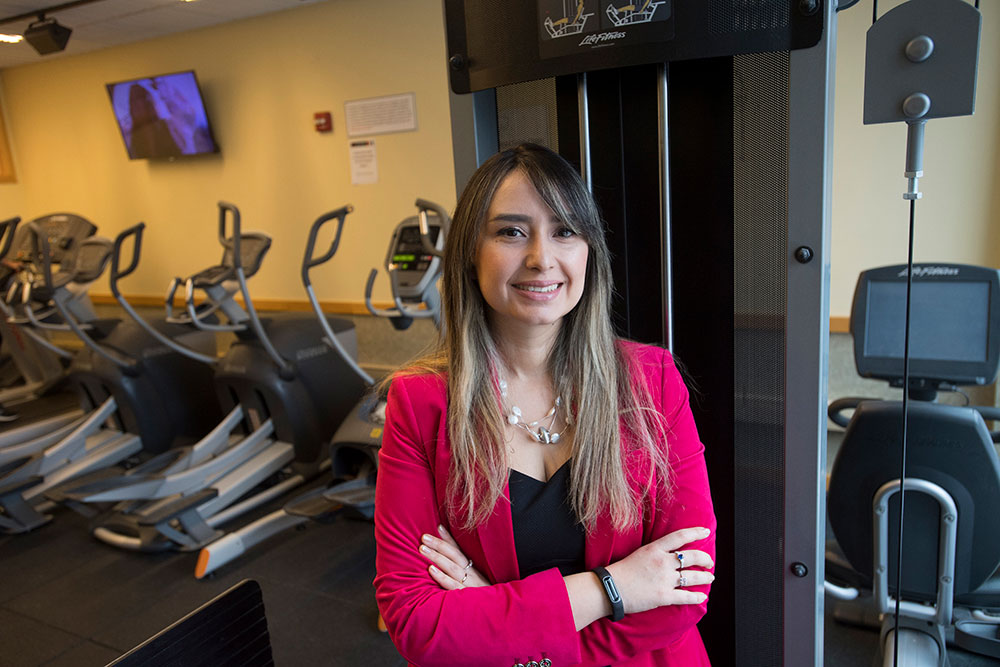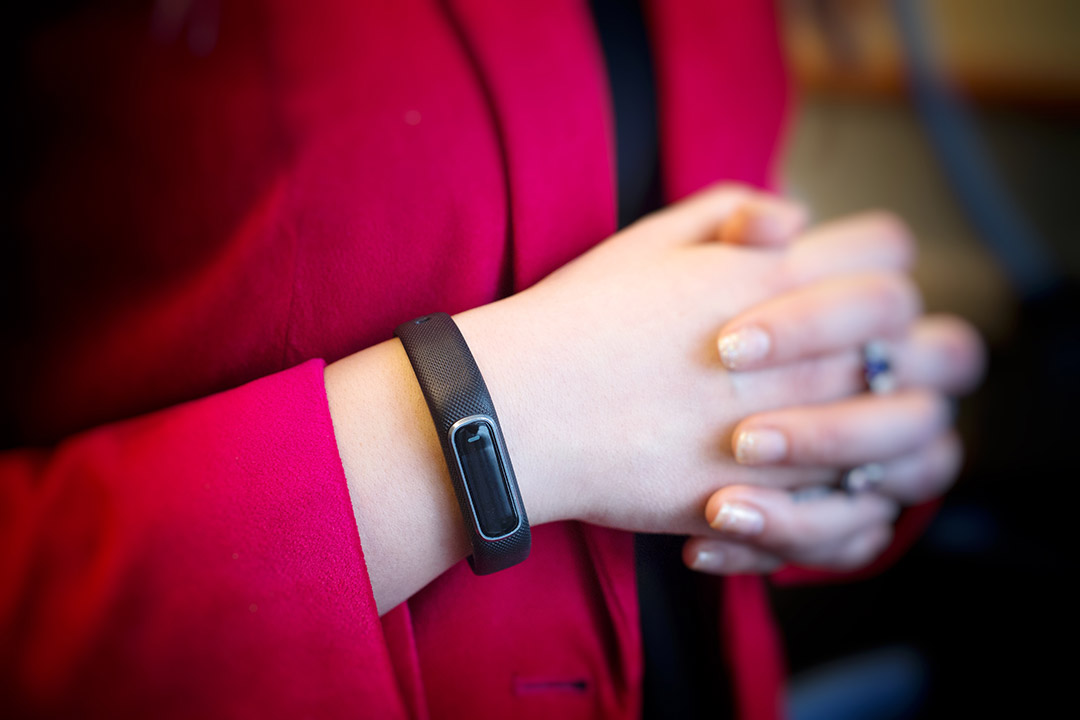RIT researcher uses data to help wearable technology companies connect with consumers
Brand engagement study will help improve health-related outcomes
A. Sue Weisler
Duygu Akdevelioglu, an assistant professor in RIT’s Saunders College of Business, is evaluating how wearable technology companies can better engage with their customers and humanize relationships in machine-mediated environments built to promote healthy behavior.
New research is evaluating how wearable technology companies can better engage with their customers and humanize relationships in machine-mediated environments built to promote healthy behavior.
For more than four years, Duygu Akdevelioglu, an assistant professor in Rochester Institute of Technology’s Saunders College of Business, has been gathering data on brand engagement in the wearable technology space, a $34 billion industry according to Forbes, and its impact on motivation. Her goal is to lead companies such as Fitbit, Garmin, and Apple to discover new ways of engaging with consumers that will ultimately improve health-related outcomes by encouraging people to focus on their physical and psychological wellbeing.
A. Sue Weisler
Wearable technology manufacturers have much to learn from fitness communities.
“Wearables are an increasingly evolving market,” said Akdevelioglu, who has expertise in marketing, consumer communities, and social media. “Tracking our bodies, movements and emotions, wearable devices have been incorporated into homes, workplaces, and even insurance plans. But there are fundamental questions when it comes to designing wearable technologies, devising marketing strategies, and the effect that both have on consumer health.”
Akdevelioglu said that wearable technology manufacturers have much to learn from fitness communities including how friendly rivalries between people develop and how cooperation versus competition affects interaction. She believes the data she has gathered will help companies determine how to maximize brand engagement and enhance interaction between companies and their users.
“We’ve learned that consumers put a lot of trust in fitness communities and people will share just about any information on social media looking for support,” said Akdevelioglu. “These fitness communities are about trust, collaboration, and positivity. They not only share fitness information, but personal information like the loss of a pet or difficulties with children.”
Enhanced social engagement in the wearables community and reciprocal support also makes people tend to exercise more, increase their steps, and regularly monitor their heartrate and sleep quality, she added.












